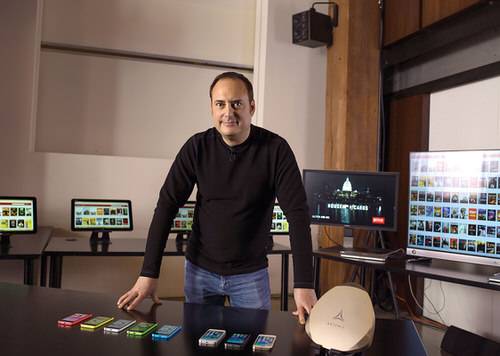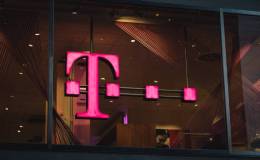Steve Perlman’s startup Artemis is finally going to try and prove it can build a better, faster wireless network in tech-centric San Francisco. The project will be the first large-scale test of a potentially transformative—yet so far almost entirely hypothetical—technology Artemis calls pCell.
See also: 5 Things To Know About pCell, A Bold Scheme For Superfast Data
If Artemis can make good on its claims, it could upend the wireless industry as we know it. If not—well, it’ll have a hard time explaining away its failure.
I Left My Signal in San Francisco
According to the Artemis announcement, Dish Network will lease a portion of its mobile spectrum in San Francisco, which the satellite TV provider purchased at auction last year. Over the next two years, Artemis will deploy pCell transmitters around the city, creating a new next-generation network designed to provide a “leapfrog in spectral efficiency,” as the company’s latest white paper says.
Artemis says many existing cellphones will be able to tap into the new network just by swapping in Artemis SIM cards, including the latest batch of iPhones and most new Android handsets. Of course, it hasn’t yet said anything about how much it (or Dish) will charge for such a network, or how its users will be able to stay connected outside of San Francisco.

We first heard about Artemis and its vaunted pCell wireless technology about a year ago. The company says that its system differs from traditional cellular networks by exploiting the interference that comes when a large number of signals collide, rather than trying to minimize it.
Normally, such interference leads to cellular dead zones. Artemis, however, says its transmitters will combine “interfering radio waves to create an unshared personal cell (a ‘pCell’) for each LTE device, providing the full wireless capacity to each user at once, even at extremely high user density” (emphasis in the original).
So far, pCell tests have been successful during indoor, highly controlled tests. Whether or not pCell can succeed in the real world remains to be seen.
Fool Me Once …
Artemis’s founder and CEO Steve Perlman is making some pretty bold claims with pCell, and you could be forgiven for viewing them skeptically. After all, Perlman’s previous ventures haven’t exactly worked out according to plan: He founded WebTV back in 1995, and later created the online game streaming service OnLive in 2003. Both companies turned out to be flops, with OnLive experiencing a spectacular flameout in 2012.

But while Perlman’s startup track record may be less than stellar, both Internet-based television and cloud-based game streaming are huge today. You could look at WebTV and OnLive as ventures that were simply way ahead of their time.
That said, at the time Perlman made promises of technological viability that neither business could keep. Now we’ll get to see if Artemis and pCell continues that pattern—or makes a radical new break with it.
Images courtesy of Artemis

















